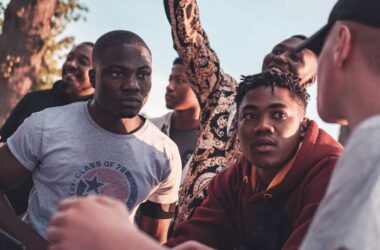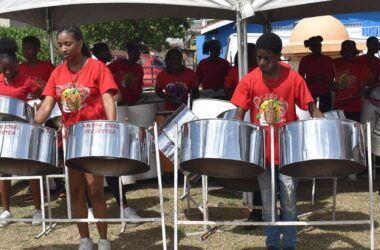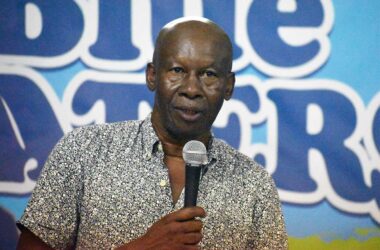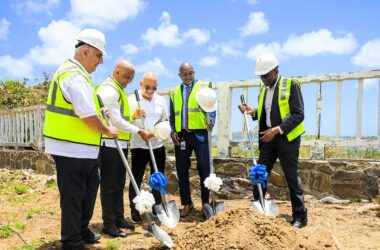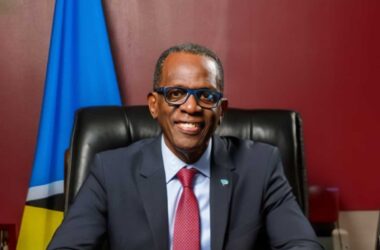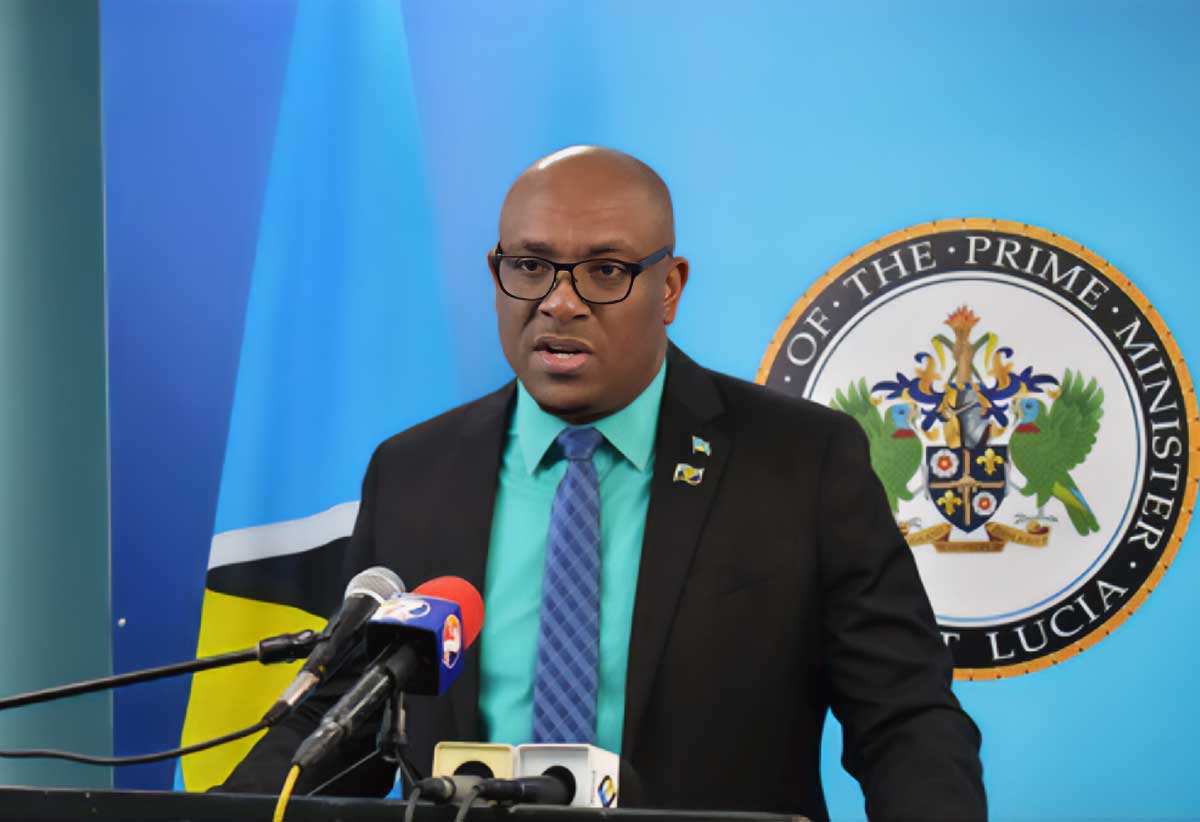
Caribbean Countries participating in the United Nations’ Climate Change Conference this year will synchronize their messages to accentuate the challenges they are facing, as opposed to presenting messages that are at variance with each other.
That’s according to Shawn Edward, Minister responsible for Sustainable Development and Innovation in Saint Lucia.
Edward, who recently attended the Second Caribbean Small Island Developing States High-Level Dialogue on Climate Change in Grenada, Monday told members of the media that “it was very productive meeting (and) we had no fewer than seven prime ministers in attendance.”
“We were able to have a harmonized position,” Edward told reporters.
“Coming out of this meeting was a position by CARICOM -at least those who attended, that instead of going to COP (COP being the Conference of the Parties for the United Nations’ Framework Convention on Climate Change) and presenting messages that are at variance with each other from a CARICOM perspective, it is important that we synchronize our messages,” he said.
“We have seen climate change impact almost every facet of society almost; every sector of national development,” Edward stated, noting that climate change is perhaps the single most challenging matter that SIDS have to deal with.
He added: “Of course, we’ve been told by the Intergovernmental Panel on Climate Change that the conditions have worsened and resulting from that would be more powerful hurricanes, more severe droughts, (etc.); all of those are impacting us in very adverse ways. When a hurricane comes in a matter of two hours it can decimate your agricultural sector, destroy infrastructure and can render your country from being a thriving one to one where you have zero GDP in the space of two (to) three hours.”
According to Edward (who attended the session with PM Pierre in Grenada), moving into COP, the discourse will revolve around the aforementioned points. Additionally, he said, CARICOM must continue pushing for monies that were pledged at previous COP meetings-monies, they (Small Island Developing States), are yet to see.
Over 100 billion dollars was pledged by developed countries at COP 15 “monies that was supposed to have been made accessible to developing countries but to date we notice that that money has not been forthcoming.”
As a result, the minister explained, “when we are impacted by weather systems we are left with no choice but to borrow. Every one of the Caribbean countries (continues) to borrow and sometimes we have to borrow on the brink of credential limits just to ensure that we deal with the adaptation issues that we must undertake in the face of climate change.”
The High-Level SIDS Dialogue, first held in The Bahamas and Grenada “saw the need to ensure that there was continuity where that is concerned,” Edward said, noting that “this one was extremely critical because it comes on the eve of COP 28.”
This year’s COP 28 will take place from November 30 to December 12 in the United Arab Emirates (UAE).
One of the main concerns CARICOM has “is how will the Loss and Damage Fund (which was agreed to in Sharm El Sheikh, Egypt at COP 27) be operationalized, how would it be capitalized and how will monies be channeled to Small Island Developing States through the Loss and Damage Fund,” Edward said, adding that next week, ministers responsible for climate change in CARICOM will be having yet another meeting “to galvanize our position to ensure that at least the messages are synchronized and there is coherence in what the Caribbean puts out in Dubai at COP 28.”
Every year COP brings countries together to identify and assess climate measures. This year COP is expected to bring over 70,000 participants together, including heads of state, government officials, international industry leaders, private sector representatives, academics, experts, youth, and non-state actors.
Providing an update on a recent trip to The Bahamas where he discussed other pivotal matters, Edward said “I was representing Prime Minister Pierre… and again it (was) just the Caribbean and Latin American countries looking for ways to access monies at very cheap rates to deal with some of the issues that we must attend to as it relates to climate change.”
That meeting was Chaired by Bahamian Prime Minister Philip Davis for two days (from October 1st -2nd).
“I think it was a very good meeting. A lot of the financial institutions that operate within Latin America and (the) Caribbean made presentations where they basically were offering packages at concessionary rates that countries within the region can borrow to deal with climate change,” Edward said.
Edward said that at that meeting he stated that “that yes, banks operate to make a profit and banks are looking to lower their interest rates for the loans that they provide, but I wanted to hear more as it relates to grant funding because let’s face it we practically have to borrow for a lot of the things that we have to undertake in-country.”
“Sometimes you don’t have the capacity to raise the money almost immediately and so we have to borrow. I can tell you that we have done an excellent job in servicing our debt as a country and we have a very astute Minister of Finance in the person of Prime Minister Pierre who’s always on top of the financial situations that confront the country, so yes, we have the capacity to borrow,” the minister said, however, he added, “we cannot be (in) a situation where we continue to borrow over an extended period of time; that will seriously debilitate government and it will put us in a position where we will not be able to deliver on services to our people as we are mandated to as an administration.”
Whilst there are a lot of organizations that are “willing to work with us, I must tell you that sometimes the whole financial architecture that exists can be a bit bureaucratic in getting you to actually apply and receive grant funding. As I said, the banks were able to provide a lot of information in terms of what is available, however notwithstanding that they are making monies available at concessionary rates, I believe that there is need for us as ministers (and) as policy makers to push a more robust discussion as it relates to grant funding.”
Edward also made it clear that SIDS are not responsible for climate change. According to him, “we know what causes climate change … (and) a lot of Small Island States are paying for it.
“We are not the emitters, we are not the culprits but we are the ones suffering the consequences. So when developed countries come and pledge monies I think it is very unconscionable for them not to put the mechanisms in place to ensure that the monies being pledged trickle to Small Island Developing States that on a daily basis have to live with the consequences of the actions of people who are in positions where their lot in life is a lot better… as far as our own circumstances are concerned.”


